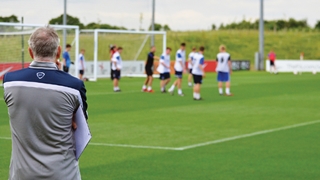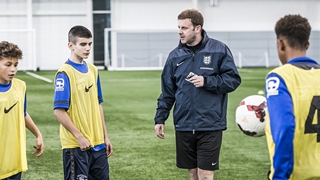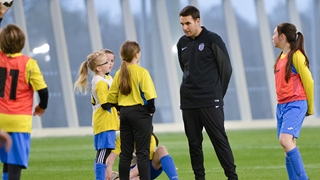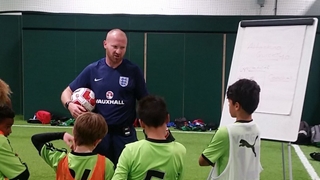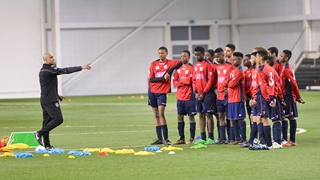
In his article, What to say to the teenage footballer, Dr Perry Walters explores some of the common issues and opportunities that can arise when communicating with players aged 15-16.
It's a stage in their development, he explains, when the way they "perceive, process and respond to information" changes and begins to impact the way they think, feel and behave.
He goes on to say that it can also be a time "characterised by intense emotions, novelty seeking, risky decision-making and with an increased importance attached to peers"
However, rather than this be a challenge for coaches, Walters suggests that it can be one of opportunity if the environment created for the players is optimised to cater for these psychological shifts.
But how exactly can this be achieved? To find out, we asked Dr Walters to provide five useful tips to consider when communicating with players during their mid-adolescent years.
1) Empower them through insight
You can embolden young players by communicating to them about the unique opportunities of the adolescent brain: that it is a time of enhanced plasticity (malleability) to adapt to new information. This might help foster a sense resilience and ownership in players.
2) Monitor the emotional climate
Coaches need to be mindful that this is a period of emotional intensification and that adolescents might not be thinking and feeling in the same way as adults (or children). This provides both opportunities such as passion, and excitement but also vulnerabilities such as heightened anxiety, anger and shame.
3) Walk through how to react to disappointment
Mid-adolescents have been described as having ‘Ferrari engines with fiat brakes’. This is especially the case in aroused environments. However, you can help to ‘scaffold’ the development of their emotional control by modelling how to react to setbacks (both verbally and psychically) and emphasising process rather than performance goals.
4) Reward creativity
Mid-adolescents are motivated to find reward in experiencing and trying new and novel things (which is linked to a small increase of dopamine at this age).
You can take advantage of this unique period of development by encouraging creative play and exploratory decision-making by building ‘experimental periods’ into training programmes and explicitly rewarding creative or inventive play.
5) When communicating be the pre-frontal cortex.
By this I mean you can try to ‘scaffold’ for mid-teens what is still a work in progress for them such as judgement capabilities and emotional control. For example, try to dampen down unhelpful heightened emotions by reducing the ‘fear of failure’ for players.


